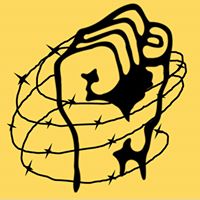In the face of increasing attacks on democratic space including higher education institutions, students’ bodies, teachers and civil rights activists, a number of civil society organisations have come together to form a People’s Commission on Shrinking Democratic Space (PCSDS).
This Commission is holding its first people’s tribunal on attack on educational institutions from 11th April to 13th April where over 120 testimonies of students and professors will be presented before a jury of eminent persons comprising Prof. Romila Thapar, Justice (Retd.) AP Shah, Justice (Retd.) Hosbet Suresh, Justice (Retd.) BG Kolse Patil, Prof. Amit Bhaduri, Dr. Uma Chakravarty, Prof. TK Oommen, Prof. Vasanthi Devi, Prof. KM Shrimali, Prof. Ghanshyam Shah, Prof. Meher Engineer, Prof. Kalpana Kannabiran and Ms. Pamela Philipose. A number of experts will also depose before the jury.
Date : 11 to 13 April 2018 (For a full schedule, click here)
Time : 10 a.m. onwards
Venue : Constitution Club of India, Rafi Marg, Behind Reserve Bank of India New Delhi
You are kindly requested to attend this event and also forward to others who would be interested. Below is a detailed note.
Detailed Note
People’s Commission on Shrinking Democratic Space in India (PCSDS) is a national level membership based collective of human rights organisations, democratic rights activists, social movements and concerned individuals who have come together with the objective of responding to and advocating the issues of freedoms of opinion, expression, association, assembly, dissent, protest and all other rights, including harassment and criminalisation, of all human rights defenders. PCSDS was formed in May 2016 through a National Convention after a series of consultations at state, regional and national levels. For more information on PCSDS, please visit www.pcsds.in.
The first PCSDS people’s tribunal is being organised to respond to the challenges faced by higher educational institutions and students and teachers in these institutions. Over the past few years, there have been several attempts by the government to suppress voices of dissent and questioning in educational institutions. Incidents from Jawaharlal Nehru University, Tata Institute of Social Sciences, Assam Women’s University, Hyderabad Central University, Film & Television Institute of India, Delhi University, Jadavpur University, Allahabad University, Benaras Hindu University, Guwahati University, Punjab University and several other institutions testify this. It is the centres of higher learning in India that have become the battleground for the foundation of Indian democracy and all it stands for.
People’s Tribunal on Attack on Educational Institutions in India will be held on April 11-13, 2018, at the Constitution Club of India, New Delhi. PCSDS secretariat has documented 120 testimonies of students and teachers from more than 35 universities and higher educational institutions spread over 16 states. These testimonies are classified under themes as mentioned in the attached schedule. For each theme, there will be expert depositions (please refer to the attached schedule) followed by depositions from students and teachers.
The jury panel for the tribunal consist of Prof. Romila Thapar (Chair), Justice (Retd.) AP Shah, Justice (Retd.) Hosbet Suresh, Justice (Retd.) BG Kolse Patil, Prof. Amit Bhaduri, Dr. Uma Chakravarty, Prof. TK Oommen, Prof. Vasanthi Devi, Prof. KM Shrimali, Prof. Ghanshyam Shah, Prof. Meher Engineer, Prof. Kalpana Kannabiran and Ms. Pamela Philipose.
The objective of the tribunal is to record and enquire – the repression, surveillance and administrative actions under which the students, faculty and employees of institutes of higher learning are subjected to; the deliberate criminalisation of students and teachers in various parts of the country; increasing government and State interference; the undermining of the Constitution and Constitutional values and; the structural discrimination faced by students based on caste, gender and region.
The jury panel will take note of the facts through testimonies presented before them on April 11 and 12, and on April 13 at Constitution Club of India at 2 PM will be sharing their interim observations and recommendations through a press conference. This will be followed by a comprehensive report.
***
UPDATE: During the Tribunal held from 11-13 April 2018, testimonies of 120 students and teachers from close to 50 institutions and universities spread across 17 states were considered by the jury panel; 49 testimonies were deposed orally at the tribunal. Along with these testimonies, there were 17 expert submissions on all thematic issues. Preliminary observations made include the impact of the privitisation of education on poor communities, the saffronisation of education, criminalisation of dissent, and the structural marginalisation of teachers and students based on caste, gender, religion and region. For more information, click here for a pdf of the observations.
All information is also available on the www.pcsds.in, www.facebook.com/pcsdsindia and www.twitter.com/pcsdsindia.



